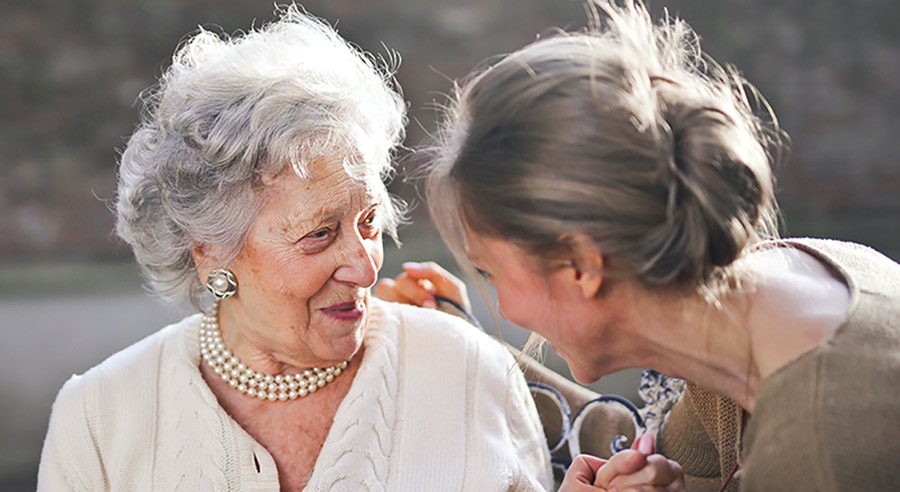Top Home Care Providers in Australia: Find the Best In Home Caregivers for Your Demands
Top Home Care Providers in Australia: Find the Best In Home Caregivers for Your Demands
Blog Article
How In Home Care Givers Address the Unique Challenges and Psychological Demands of Families Looking For Support for Their Family Members
In-home caregivers play a pivotal function in navigating the complexities dealt with by families seeking support for their liked ones. By understanding distinct household characteristics and offering tailored emotional support, these professionals not only address immediate care demands but additionally cultivate a setting of trust and open communication. This method is essential in managing the emotional pressure often experienced by families, as it acknowledges their issues and validates their experiences. Nonetheless, the subtleties of this partnership prolong beyond simple caregiving; the ramifications for family members well-being and caregiving efficacy warrant further exploration.
Understanding Household Dynamics
Understanding family members dynamics is essential for offering reliable in-home treatment, as each household runs within an unique collection of partnerships and interactions. These dynamics incorporate various elements, consisting of communication designs, roles, and power structures that influence just how treatment is delivered and gotten. The caretaker should recognize these variables to ensure that care plans align with the family members's assumptions and values.
Various families may display distinct patterns of communication, such as collaborative approaches or ordered structures. In some families, a key decision-maker might hold significant influence, while in others, choices may be extra democratic. Recognizing these patterns helps caregivers customize their methods to fit the family's specific requirements.
In addition, social histories play an essential function fit household dynamics. Caretakers ought to be culturally proficient, acknowledging and appreciating diverse practices and ideas that might affect care choices.
Ultimately, a thorough understanding of family members dynamics facilitates improved communication, fosters trust fund, and improves the caregiver's capacity to support the family properly. By acknowledging the elaborate web of relationships and duties, caregivers can create a helpful setting that promotes wellness for both the individual obtaining care and the household as a whole.
Offering Emotional Support
Giving psychological support is a vital element of in-home treatment that significantly improves the health of both the private getting care and their family participants. In the context of caregiving, psychological assistance involves active listening, compassion, and recognition of sensations. Caretakers are trained to identify the emotional struggles that families encounter, such as seclusion, regret, and stress and anxiety, and to give a compassionate existence that minimizes these worries.
By promoting open communication, caretakers develop a secure space for relative to reveal their concerns and concerns. This discussion not just motivates psychological launch yet additionally strengthens trust in between the caregiver and the household. In addition, caregivers can use useful techniques to assist families manage tension and promote resilience.

Ultimately, the psychological support offered by at home caregivers boosts the lifestyle for both customers and their households, advertising a much more caring and understanding caregiving atmosphere. This holistic strategy makes certain that emotional needs are dealt with together with physical health and wellness considerations.
Handling Daily Care Tasks
Handling everyday care jobs is an important facet of in-home care that ensures individuals receive the support they require to keep their wellness and freedom. Caretakers play a vital role in helping with tasks of day-to-day living (ADLs), which consist of showering, clothing, brushing, and meal preparation. By taking on these obligations, caretakers assist ease the physical and psychological burdens that family members might encounter while caring for their liked ones.
Along with personal treatment, caregivers are also charged with medicine administration, making certain that clients abide by prescribed timetables and dosages. This oversight is essential for maintaining health and wellness and protecting against unfavorable effects from missed or inaccurate medications. Caregivers typically help with flexibility, giving support for clients relocating around their homes, therefore decreasing the threat of falls and enhancing general safety.

Fostering Open Communication
Reliable monitoring of everyday treatment tasks often rests on the high quality of communication in between caregivers, customers, and their families. Open up interaction promotes a setting where worries, choices, and comments can be freely traded, guaranteeing that treatment is customized to fulfill individual needs. Caregivers should prioritize regular check-ins with both clients and their households, facilitating discussions that deal with any concerns or adjustments in treatment requirements.
Making use of different communication approaches-- such as in person conferences, call, and composed updates-- can enhance understanding and provide families with comfort. It's necessary for caretakers to actively listen, demonstrating empathy and regard for the emotional landscape of the family. Encouraging inquiries from member of the family can additionally assist make clear care plans and strengthen the caregiver's commitment to transparency.
Moreover, preserving open lines of interaction allows caregivers to recognize and react promptly to any type of shifts in a client's health condition or psychological health. This aggressive technique not only strengthens the caregiver-client vibrant but additionally equips families to participate proactively in the care process. Ultimately, fostering open interaction is crucial for improving the quality of in-home care and promoting a supportive atmosphere for all entailed.
Building Count On and Relationships
Count on is the keystone of effective in-home treatment, as it develops a structure for purposeful relationships between caretakers, clients, and their households. Building this trust fund requires constant, clear communication and a real commitment to the health of those get redirected here involved. Caretakers need to demonstrate integrity via punctuality, adherence to care plans, and responsiveness to the demands and choices of clients.
To cultivate depend on, caregivers ought to take part in active listening, guaranteeing that households feel heard and understood. This entails not just resolving immediate problems however likewise preparing for future needs, thereby equipping families and boosting their sense of control. Establishing rapport with shared experiences and considerate interactions can even more solidify these connections.
In addition, caretakers should be educated to identify and attend to the psychological intricacies faced by family members. By showing empathy and concern, they can minimize uncertainties and concerns, reinforcing count on. Normal updates and check-ins with family members can likewise improve transparency, enabling them to feel engaged and educated concerning their loved one's care.
Ultimately, building trust fund and nurturing partnerships in at home care is a joint process that considerably influences the top quality of treatment supplied, promoting a supportive environment that benefits everyone involved.
Conclusion
At home caretakers play a crucial duty in addressing the special obstacles and emotional needs of family members. By recognizing family characteristics, offering psychological assistance, and cultivating open communication, caretakers improve the overall caregiving experience. Their ability to manage day-to-day care jobs while constructing count on and strong partnerships cultivates an encouraging environment for clients and their households. Ultimately, the caring engagement of caregivers considerably adds to boosted well-being and strength for those browsing the complexities of caregiving.
Recognizing household characteristics is crucial for giving efficient at home care, as each family operates within an unique set of interactions and relationships.Supplying emotional support is an important part of in-home useful site treatment that significantly enhances the health of both the specific getting care and their household participants. By taking on these duties, caretakers help minimize the psychological and physical concerns that families may encounter while caring for their loved ones.
Reliable administration of daily care tasks directory commonly pivots on the high quality of interaction in between caretakers, clients, and their family members - home care providers.Depend on is the foundation of effective in-home treatment, as it establishes a structure for purposeful connections between caregivers, customers, and their families
Report this page